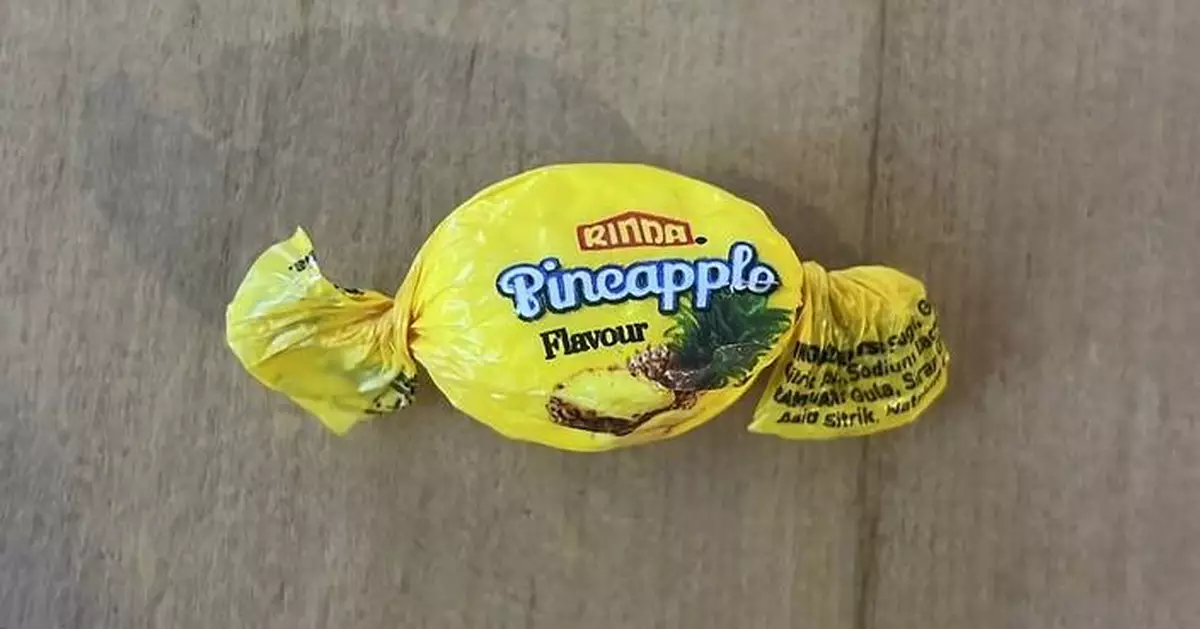WELLINGTON, New Zealand (AP) — A New Zealand charity working with homeless people in Auckland unknowingly distributed candies filled with a potentially lethal dose of methamphetamine in its food parcels after the sweets were donated by a member of the public.
Auckland City Mission said Wednesday that staff had started to contact up to 400 people to track down parcels that could contain the sweets, which were solid blocks of methamphetamine enclosed in candy wrappers. Three people were treated in hospital after consuming them, but were later discharged, authorities said.
The amount of methamphetamine in each candy was up to 300 times the level someone would usually take and could be lethal, according to the New Zealand Drug Foundation, which is a drug checking and policy organization that first tested the candies.
Ben Birks Ang, a Foundation spokesperson, said disguising drugs as innocuous goods is a common cross-border smuggling technique and more of the candies might have been distributed throughout New Zealand.
The sweets had a street value of NZ$1,000 ($608) per candy, which suggested the donation by an unknown member of the public was accidental rather than a deliberate attack, Birks Ang said.
The authorities' “initial perceptions” were that the episode was likely an importation scheme gone awry, Detective Inspector Glenn Baldwin said, but the nature and scale of the operation was unknown. Officers had recovered 29 of the candies, but did not know how many were circulating, he said Thursday.
Police were investigating reports that someone had attempted to sell one of the sweets online, he added.
The City Missioner, Helen Robinson, said eight families, including at least one child, had reported consuming the contaminated candies since Tuesday. The “revolting” taste led most to immediately spit them out, she said.
The charity's food bank accepts only donations of commercially produced food in sealed packaging, Robinson said. The pineapple candies, stamped with the label of Malaysian brand Rinda, “appeared as such when they were donated," arriving in a retail-sized bag, she added.
Auckland City Mission was alerted Tuesday by a food bank client who reported “funny-tasting” candy. Staff tasted some of the remaining candies and immediately contacted authorities. One staff member was taken to hospital after sampling the sweet, Baldwin said, adding that a child and a “young person” were also treated in hospital before being discharged.
The candies had been donated sometime in the past six weeks, Robinson said. It was not clear how many had been distributed in that time and how many were made of methamphetamine.
Rinda said in a written statement that the company learned through New Zealand news reports that its candies “may have been misused” and would cooperate with authorities.
“We want to make it clear that Rinda Food Industries does not use or condone the use of any illegal drugs in our products,” General Manager Steven Teh said.
Methamphetamine is a powerful, highly addictive stimulant that affects the central nervous system. It takes the form of a white, odorless, bitter-tasting crystalline powder that easily dissolves in water or alcohol.
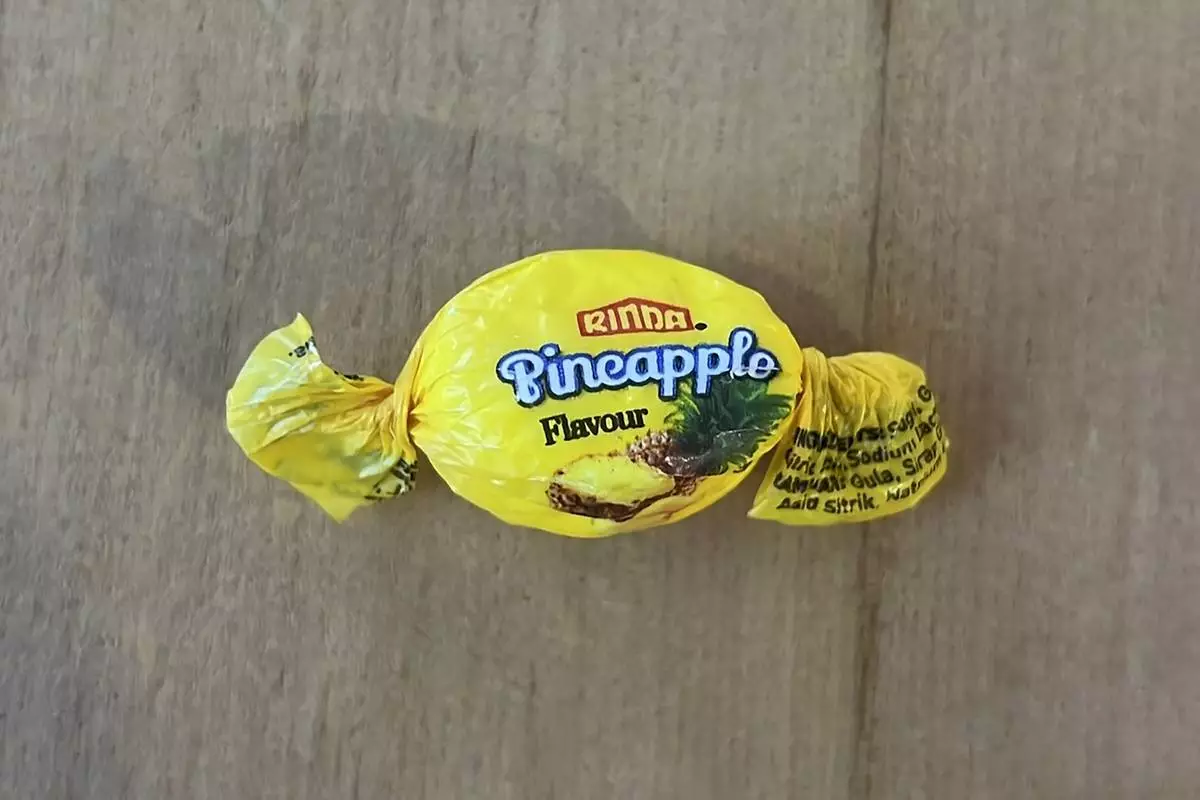
In this photo provided by the NZ Drug Foundation, a pineapple flavored candy filled with a potentially lethal dose of methamphetamine is displayed in Auckland, New Zealand, Tuesday, Aug. 13, 2024. (Shaun Hill/NZ Drug Foundation via AP)
TAMPA, Fla. (AP) — Jurors in Florida will deliberate Wednesday in the trial of four activists accused of illegally acting as Russian agents to help the Kremlin sow political discord and interfere in U.S. elections.
All four are or were affiliated with the African People’s Socialist Party and Uhuru Movement, which has locations in St. Petersburg, Florida, and St. Louis. Among those charged is Omali Yeshitela, the 82-year-old chairman of the U.S.-based organization focused on Black empowerment and the effort to obtain reparations for slavery and what it considers the past genocide of Africans.
The government also charged Penny Hess, 78, and Jesse Nevel, 34, two leaders of branches of the group’s white allies. A fourth defendant, Augustus C. Romain Jr., 38, was kicked out of the Uhurus in 2018 and established his own group in Atlanta called The Black Hammer.
Attorneys finished their closing arguments late Tuesday, and jurors told the judge they wanted to go home for the night, the Tampa Bay Times reported. The trial had been scheduled to last a month but moved quickly, concluding after a week of testimony.
“The defendants knowingly partnered with the Russian government,” prosecutor Menno Goedman told the jury in closing arguments. “Just look at their own words.”
But the defense argued that Yeshitela was only guessing and was not sure.
Chicago attorney Leonard Goodman, who represents Hess, argued that Aleksandr Ionov, who runs an organization known as the Anti-Globalization Movement of Russia, concealed from the Uhurus his relationship with Russian intelligence.
The government has “not proven that they knew Ionov was a Russian agent or a Russian government official,” Goodman said.
The defense attorney called the case “dangerous” for the First Amendment and asserted that the government was trying to silence the Uhurus for expressing their views.
Yeshitela, Hess and Nevel each face up to 15 years in prison if convicted of conspiracy to defraud the U.S. and failing to register with the Justice Department as agents of a foreign government. Romain faces up to five years for a registration charge. They have all pleaded not guilty.
Three Russians, two of whom prosecutors say are Russian intelligence agents, are also charged in the case but have not been arrested.
Although there are some echoes of claims that Russia meddled in the 2016 U.S. presidential election, U.S. District Judge William Jung has said those issues are not part of this case.
Prosecutors have said the group's members acted under Russian direction to stage protests in 2016 claiming Black people have been victims of genocide in the U.S. and took other actions for the following six years that would benefit Russia, including opposition to U.S. policy in the Ukraine war.
The defense attorneys, however, have said that despite their connections to the Russian organization, the actions taken by the African People's Socialist Party and Uhuru Movement were aligned precisely with what they have advocated for more than 50 years. Yeshitela founded the organization in 1972 as a Black empowerment group opposed to vestiges of colonialism around the world.
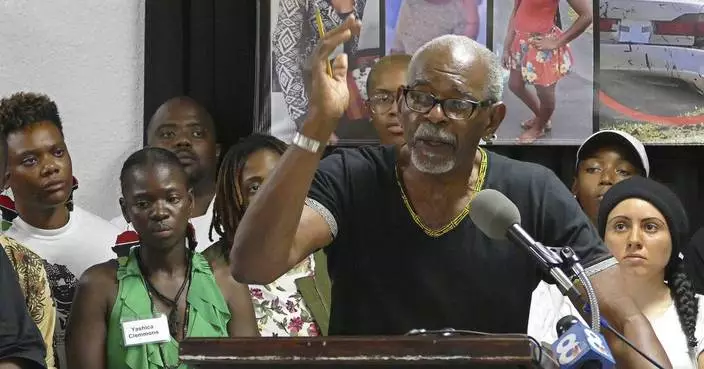
Florida jurors deliberate about activists accused of helping Russia sow political division, chaos
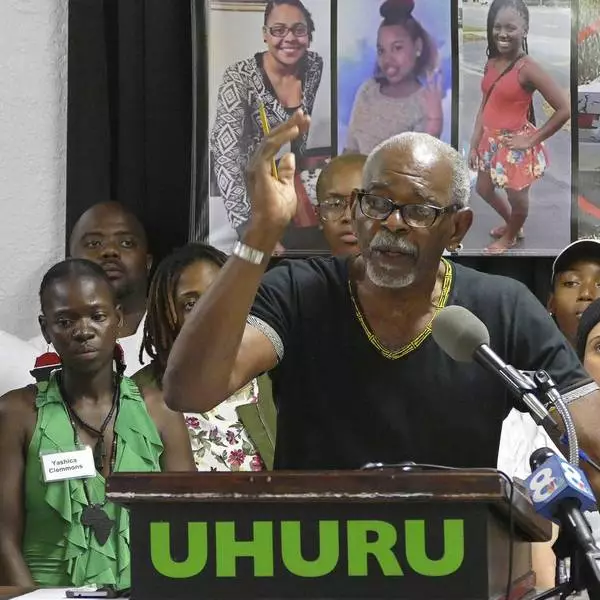
Florida jurors deliberate about activists accused of helping Russia sow political division, chaos
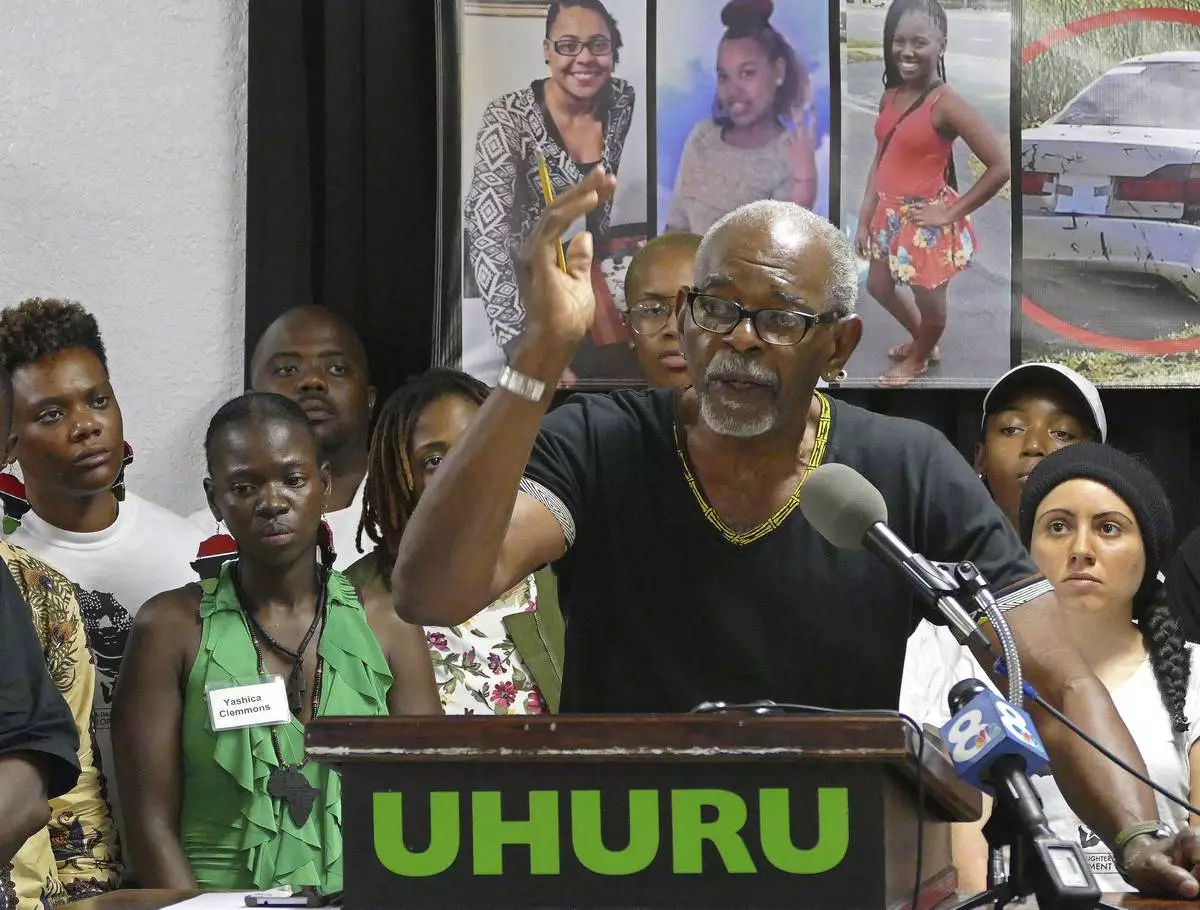
FILE - Omali Yeshitela, chairman of the International People's Democratic Uhuru Movement, St. Petersburg, addresses the recent killings of black males, and police on July 8, 2016, in Dallas. (Scott Keeler/The Tampa Bay Times via AP, File)



